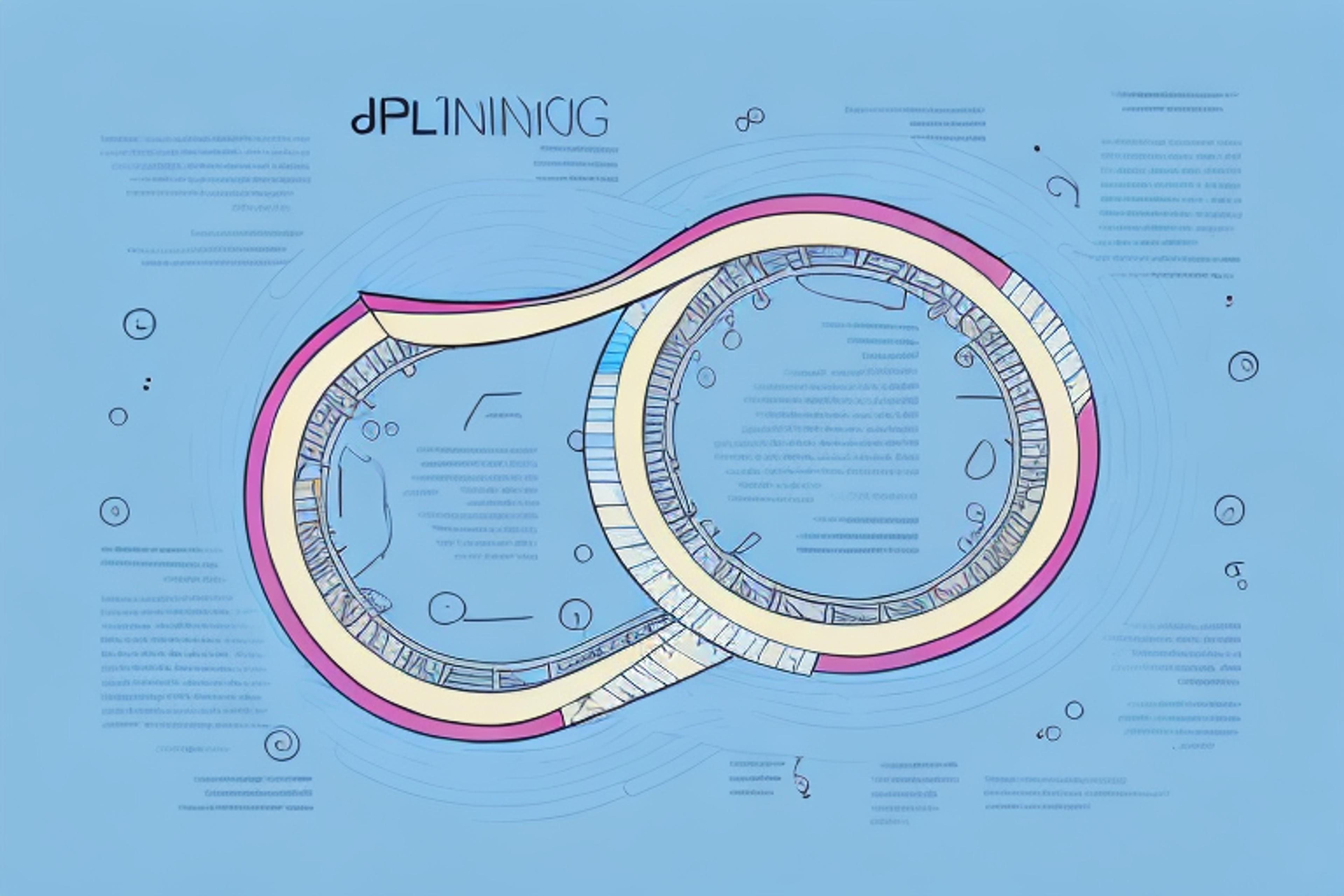IBM Consulting Interview Guide: Process, Questions, & Tips (2025)
Want an offer from IBM Consulting? Learn the exact interview process, what to expect, and how to stand out in 2025.
Posted April 12, 2025

Table of Contents
Thinking about an IBM Consulting interview? The process, the questions, and its difficulty level? Well, it can feel like a big deal, but you can do this. Whether you’re going for a tech role or a management position, you need to be ready for IBM interview questions that test your skills and your fit for their culture.
From technical assessments to behavioral interview questions, there’s a lot to cover. But the good news? Once you know what to expect, it’s a lot easier to prepare. Let’s break it all down.
IBM Interview Process (2025)
The IBM Consulting interview process is designed to assess your technical skills, problem-solving abilities, cultural fit, and client-centric thinking. It’s structured and rigorous, aiming to evaluate candidates across multiple dimensions. While the process may vary slightly depending on the role and team you’re applying to, most candidates report going through several stages: application, initial screening, preliminary assessment, multiple interview rounds, and finally, the offer stage.
Application or Recruiter Outreach
Most candidates apply through the IBM Careers portal, LinkedIn, or get contacted by recruiters directly. To boost your chances of making it past this initial stage:
- Tailor Your Resume: Make sure your resume highlights relevant experience, especially skills related to consulting, leadership, problem-solving, and technical expertise (if applicable).
- Network Strategically: Connect with current IBM employees on LinkedIn, especially those working in IBM Consulting. A referral can increase your chances of landing an interview.
- Research Your Role: Understand what IBM Consulting is looking for in your target role. This will help you customize your resume and cover letter.
When applying online, use keywords from the job description to pass automated Applicant Tracking Systems (ATS). Keywords like “consulting,” “problem-solving,” “leadership,” and specific technical skills can make a big difference.
Preliminary Assessment (Online Video Interview or HR Screen)
Some candidates report having to complete an asynchronous online video interview, where you’re given 1 minute to prepare and 3 minutes to respond to each question. The platform usually does not allow retakes, so preparation is key.
What to Expect:
- Behavioral & Situational Questions: Designed to assess your ability to handle challenging situations, work in teams, and demonstrate leadership.
- No Retakes Allowed: You only have one attempt, so it’s crucial to prepare thoroughly.
- Practice Session Provided: Use the practice feature to get comfortable with the format and timing.
How to Prepare:
- Use the STAR Method: Structure your answers by outlining the Situation, Task, Action, and Result. Keep responses clear and concise.
- Focus on Leadership & Problem-Solving: IBM values adaptability, resilience, and innovative thinking. Prepare stories that showcase these traits.
- Record Yourself: Practice recording your answers to common questions and review them for clarity, tone, and structure.
Prepare answers to common behavioral questions in advance. Have a set of 3–5 go-to examples ready that showcase different aspects of your skills, leadership style, and problem-solving approach.
First Round Interviews (Case-Based & Behavioral)
During this stage, you’ll likely face two interviews, each conducted one-on-one. The focus is primarily on behavioral questions and case studies. Expect varied interview styles depending on the interviewer’s approach.
What to Expect:
- Behavioral Interviews: Common questions include describing past challenges, leadership experiences, and how you work within a team.
- Case Studies: These assess your analytical thinking, structured problem-solving, and communication skills.
- Inconsistent Styles: Some interviewers may be supportive, while others may test your resilience and ability to handle pressure.
How to Prepare:
- Master the STAR Method: Use it to organize your behavioral answers effectively.
- Learn Case Frameworks: Practice frameworks like MECE (Mutually Exclusive, Collectively Exhaustive), SWOT Analysis, and Profitability Analysis.
- Practice Mental Math: Quick calculations can be crucial in case interviews, especially when breaking down complex problems.
Second Round Interviews (Behavioral & Case Study Focus)
This stage often includes two to three interviews with a mix of behavioral questions, case studies, and technical assessments (if applicable). Prepare to dive deeper into your problem-solving methods and leadership approach.
What to Expect:
- Behavioral Questions: Assessing your ability to adapt, lead, and resolve complex problems.
- Case Studies: Typically more challenging, requiring structured analysis, hypothesis generation, and clear communication of your findings.
- Technical Assessments (For Engineering/Data Science Roles): Coding challenges, systems design discussions, or AI/ML scenario-based questions.
How to Prepare:
- Refine Your Frameworks: Ensure your problem-solving frameworks are strong and can be applied flexibly to various scenarios.
- Technical Preparation (If Applicable): Brush up on object-oriented programming, data structures, and relevant programming languages.
- Practice, Practice, Practice: Conduct mock interviews, ideally with someone experienced in consulting or technology roles.
Final Round Interviews (Assessment Center or Panel Interviews)
This stage often involves interviews with senior consultants, managers, or partners. It’s your opportunity to showcase everything you’ve prepared so far.
What to Expect:
- Technical, Strategic, and Behavioral Interviews: A comprehensive evaluation of your skills, knowledge, and fit for the role.
- Panel Interviews: You may face several interviewers at once, especially if applying for high-level positions.
- More Comprehensive Cases: These require deeper analysis, strategic thinking, and a structured presentation.
How to Prepare:
- Be Ready for Deeper Questions: Be prepared to elaborate on previous answers or provide more detailed explanations of your approach.
- Prepare a Structured Presentation: Practice delivering your findings clearly and confidently.
- Research IBM’s Culture: Highlight how your skills and values align with IBM’s mission and work culture.
Read: The Ultimate Guide to the Consulting Case Interview – With Examples
IBM Consulting Interview Questions
IBM Consulting interviews are designed to assess a mix of technical expertise, problem-solving ability, leadership skills, and cultural alignment. Below is a categorized breakdown of the most commonly asked questions across various roles.
Traditional Interview Questions
These questions may appear throughout the process, especially in initial screening or hiring manager interviews.
- Tell us about yourself
- Why do you want to work at IBM?
- Why are you applying to this role?
- Who are our largest competitors?
- What is one thing IBM has done recently that impressed you?
- How would you approach learning a new thing/process?
- Describe a time when you had to resolve a conflict or disagreement and how did you go about it?
- How would you measure the success of a consulting engagement?
- What do you know about IBM’s mission and values?
Tips for Answering Traditional Interview Questions at IBM
IBM’s interview process includes standard questions to understand your skills, motivation, and cultural fit. Here’s how to make your answers stand out:
1. Why IBM?
Show you’ve done your research! Mention specific projects, values, or innovations you admire, like their AI advancements or hybrid cloud solutions. Relate your own skills and goals to IBM’s mission and vision.
2. Tell Me About Yourself
Keep it concise, brief (preferably 60 to 90 seconds), and focused. Highlight relevant skills, experience, and your interest in IBM. Mention how your background aligns with IBM’s work in AI, cloud computing, or other areas you’re passionate about.
Read: How to Answer "Tell Me About Yourself" in Consulting Interviews
3. How Would You Approach Learning a New Process?
Break it down: Research, apply, and get feedback. Mention a time you successfully learned something new and applied it effectively.
4. How Would You Measure the Success of a Consulting Engagement?
Talk about clear metrics: client satisfaction, ROI, meeting project objectives. Highlight your ability to collect feedback and analyze results.
5. What Is One Thing IBM Has Done Recently That Impressed You?
Mention a specific IBM project, partnership, or innovation. Explain why it stood out to you and how it relates to your goals.
Behavioral & Culture Fit Questions
IBM Consulting values leadership, adaptability, client-focus, and communication skills. These questions are intended to gauge how well you align with IBM’s mission and work culture.
- What makes you interested in IBM as a whole and this role in particular?
- Why do you want to work for IBM?
- Why do you want to switch from your current role? What do you know about IBM?
- How do you think you will fit in my company?
- Explain to me your leadership experience.
- Tell me about yourself.
- What was a college course you enjoyed?
- Describe the last project you worked with at your previous employer.
- Describe how you manage a difficult stakeholder.
- Describe a situation where you did not do as well as you thought.
- How would you approach learning a new thing/process?
- Why are you interested in this specific consulting role at IBM?
- What do you think makes IBM Consulting different from its competitors?
Review IBM’s core values and their focus on AI, blockchain, hybrid cloud, and consulting services. Tailor your answers to reflect a genuine interest in their cutting-edge solutions.
Tips for Answering Behavioral & Culture Fit Questions at IBM
IBM Consulting wants to know how you handle challenges, lead projects, and adapt to new environments. They also want to see if your values align with their mission of innovation, client focus, and teamwork.
The STAR Method (Situation, Task, Action, Result) is the best way to tackle behavioral questions:
- Situation: Briefly set the context. Mention the challenge, team, or project.
- Task: Explain your responsibility or goal in that situation.
- Action: Detail the steps you took. Focus on what you did, not the team as a whole.
- Result: Share the outcome. Use metrics or positive feedback if possible.
Pro Tips:
- Always relate your answers back to IBM’s core values like leadership, innovation, and collaboration.
- For leadership questions, highlight times you took initiative, motivated others, or managed complex projects.
- Show adaptability by describing how you embraced new challenges, learned new processes, or dealt with difficult stakeholders.
- When discussing mistakes or setbacks, be honest but focus on what you learned and how you applied those lessons later.
Example: “I once led a team project to streamline a client’s reporting process. (Situation) My role was to design a system that improved accuracy and efficiency. (Task) I researched various tools, coordinated with developers, and conducted training sessions for the team. (Action) As a result, reporting errors decreased by 40%, and the process was completed 30% faster. (Result)”
Case Interview Questions (Strategy & Technology Roles)
These questions are often used for strategy, business, and technology consulting roles to test your problem-solving approach, structured thinking, and client-facing abilities.
- You are working with a client in the healthcare industry. What are some specific challenges and opportunities in this sector, and how would you address them as a consultant?
- The case question focused on Gen AI and required analyzing a business problem related to it. Break down the problem, develop a structured approach, and provide recommendations based on your analysis.
- How would you help the banking client?
- Case interview on designing educational programs for the Space Force.
- What if the competitor company wants to seize your customer?
- How would you approach building a data analytics strategy for a retail client?
- What metrics would you use to assess a cloud migration project?
Tips for Answering Case Interview Questions at IBM (Strategy & Technology Roles)
When tackling case interview questions at IBM Consulting, structured thinking and clear communication are key. They want to see how you break down complex problems, create actionable plans, and present your ideas effectively.
Two powerful frameworks to use are the MECE Framework and SWOT Analysis:
MECE Framework (Mutually Exclusive, Collectively Exhaustive)
This approach ensures you cover all areas without overlap or gaps.
- Break Down the Problem: Divide the problem into distinct categories. For example, if you’re asked to build a data analytics strategy, break it down into data collection, processing, analysis, and reporting.
- Structure Your Analysis: Ensure your categories are clear, organized, and comprehensive.
- Communicate Clearly: Walk the interviewer through your thought process, explaining why each part matters and how it fits into the overall solution.
SWOT Analysis (Strengths, Weaknesses, Opportunities, Threats)
Especially useful when evaluating business challenges or industry-specific problems.
- Strengths: What assets or advantages does the client already have? (e.g., strong customer base, existing technology infrastructure)
- Weaknesses: Where is the client lacking? (e.g., outdated systems, limited resources)
- Opportunities: What areas could the client capitalize on? (e.g., emerging markets, technological advancements like Gen AI)
- Threats: What obstacles could hinder success? (e.g., new competitors, regulatory changes)
Technical Interview Questions (Engineering & Data Science Roles)
IBM Consulting places a strong emphasis on AI, cloud, software engineering, and analytics. Prepare for coding challenges, design questions, and technical problem-solving scenarios.
- About React.js, Figma, Java, and some scenario-based questions.
- Basic Java Questions, Spring, Hibernate.
- Explain to me your leadership experience in a technical setting.
- Implement a RESTful API for a data management system.
- What’s your experience with cloud architecture (AWS, Azure, IBM Cloud)?
- Describe a cyber killchain.
Tips for Answering Technical Interview Questions at IBM (Engineering & Data Science Roles)
Technical interviews at IBM Consulting are designed to assess your technical expertise, problem-solving ability, and how well you communicate complex concepts. The interviewers want to see how you approach real-world challenges related to software engineering, cloud architecture, data analytics, and AI.
1. Understand the Core Technologies IBM Relies On
IBM Consulting frequently uses tools like Java, React.js, Spring, Hibernate, AWS, Azure, and IBM Cloud. Familiarize yourself with these technologies, especially if your role involves cloud solutions, AI, or software development.
2. Brush Up on Fundamentals & Frameworks
For software engineering roles, make sure you understand foundational concepts like OOP (Object-Oriented Programming), RESTful API design, database management, and web development frameworks.
For data science roles, focus on machine learning algorithms, data preprocessing, model evaluation, and cloud-based data pipelines.
3. Use the STAR Method for Leadership & Collaboration Questions
When asked about leadership experience in a technical setting, structure your response using the STAR Method (Situation, Task, Action, Result).
Example: Describe a complex project you led, how you organized your team, the steps you took to solve the problem, and the successful outcome.
4. Apply the 3-Step Problem-Solving Framework for Coding Challenges
- Understand the Problem: Break down the prompt and clarify any ambiguous requirements.
- Plan Your Approach: Discuss your thought process before jumping into coding. Outline your algorithm, data structures, or design pattern.
- Implement & Test: Code your solution while explaining each step. Test your solution with edge cases and discuss potential improvements.
5. Highlight Your Experience with Cloud Architecture
For cloud-related questions, explain your experience with AWS, Azure, or IBM Cloud. Discuss specific projects where you designed or implemented scalable, secure architectures. You can mention DevOps tools, microservices, CI/CD pipelines, or cloud-native solutions if relevant.
6. Be Ready to Discuss Security Concepts (e.g., Cyber Killchain)
For roles involving security, understand concepts like penetration testing, threat modeling, encryption standards, and security frameworks. You have to be able to explain what a cyber killchain is and how you would identify and mitigate threats at each stage.
Crypto & Industry-Specific Questions
These questions are intended to assess your industry knowledge, adaptability, and readiness to handle unique consulting challenges.
- What is staking in crypto?
- How would you help a banking client transition to digital payment systems?
- What are the specific challenges facing the healthcare industry, and how would you address them as a consultant?
- How would you integrate AI solutions into a legacy enterprise system?
IBM Consulting is heavily invested in AI, blockchain, and cloud solutions. Show familiarity with these topics and tailor your answers to IBM’s strengths.
Tips for Answering Crypto & Industry-Specific Interview Questions
These types of questions assess your industry knowledge, analytical thinking, and ability to provide practical, customized solutions. The interviewer wants to see how well you can apply your expertise to solve real-world problems in various industries like finance, healthcare, AI, and blockchain technology.
Preparation Tips
1. Research the Industry & Its Trends
For crypto-related questions, understand staking, DeFi, smart contracts, blockchain scalability, security protocols, and market trends. For banking and finance, be aware of digital payment systems, blockchain integration, financial regulations, and client data protection.
For healthcare, familiarize yourself with HIPAA compliance, patient data security, AI-driven diagnostics, and the challenges of digitizing legacy systems.
2. Demonstrate Practical Solutions Using Frameworks
Apply frameworks like SWOT Analysis (Strengths, Weaknesses, Opportunities, Threats) or PESTLE Analysis (Political, Economic, Social, Technological, Legal, Environmental) to identify challenges and opportunities within a specific industry.
For AI integration, mention concepts like Natural Language Processing (NLP), machine learning models, and cloud-based AI solutions.
3. Highlight Industry-Specific Knowledge
If asked about crypto, briefly explain how staking works (i.e., locking up crypto assets to support a blockchain network and earn rewards). When discussing banking clients, focus on topics like digital transformation, enhancing customer experience through mobile platforms, and streamlining payment systems.
For healthcare, address how AI can improve patient outcomes, reduce operational costs, and enhance diagnostic accuracy.
4. Use Case Studies & Examples
Reference real-world examples where possible. For instance, how a bank successfully adopted blockchain technology for cross-border payments or how AI tools improved healthcare diagnostics. If you’ve worked on related projects, share your personal experiences and how you contributed to solving specific problems.
5. Show Flexibility & Adaptability
Highlight your ability to adapt your consulting approach based on the client’s industry and unique challenges. You can mention how you would adjust your methodology when working with different sectors like finance, healthcare, and technology.
Final Thoughts: How to Win Your IBM Consulting Interview in 2025
IBM Consulting is a leader in AI, cloud computing, and enterprise transformation. Whether you’re applying for a role in technology, strategy, data, or business operations, the key is to showcase your problem-solving ability, leadership skills, and commitment to IBM’s mission.
Interviewing at IBM can feel intense, but preparation makes all the difference. Focus on the specific skills they’re testing, whether it’s problem-solving skills or knowledge of programming languages. Practicing IBM interview questions and crafting sample answers will boost your confidence. And remember, it’s not just about technical skills, they also care a lot about how you think, work with others, and fit into their culture. You’ve got this!
Learn more about consulting by reading our comprehensive guides on how to succeed in the consulting industry:
- What is Management Consulting?
- Types of Consulting: A Comprehensive Overview
- How to Get into Consulting — 5 Steps and Expert Tips
- How to Succeed in a Consulting Career - An Expert Coach's Guide
- Management Consulting Firms: An Overview of the Top Players
FAQs
How do I prepare for an IBM interview?
- Research the IBM recruitment process, review IBM interview questions, and practice solving problems quickly. Work on your problem-solving skills and make sure you’re familiar with key concepts like object oriented programming.
Is an IBM interview difficult?
- It can be challenging, especially if you’re applying for a technical role. Expect tough IBM technical interview questions and in-depth assessments. But if you prepare well, you’ll be fine.
How to clear an IBM interview?
- Practice common IBM interview questions, brush up on your technical knowledge, and work on your communication skills. Be clear, concise, and confident in your answers.
How many interview rounds are there in IBM?
- Usually, there are three to four rounds. This includes an online assessment, technical interviews, behavioral interviews, and a final interview.
How long is the IBM interview process?
- It can take anywhere from 2 to 6 weeks, depending on the role. The assessment process may be quicker for certain positions but expect a few weeks overall.
What is the IBM interview process like?
- The process includes online assessments, technical interviews, behavioral interviews, and sometimes a final interview. They assess both your skills and how well you fit their culture.
What is the IBM hiring process?
- It’s a step-by-step process involving application review, online testing, interviews, and final offers. It’s designed to evaluate your skills, problem-solving skills, and overall fit for the company.
How to answer IBM interview questions effectively?
- Be clear and direct. Break your answers into parts and use the situation, task, action, result (STAR) method. Highlight your technical skills, especially when talking about areas like computer hardware, mainframe computers, or dynamic random access memory.
What technical topics should I focus on for an IBM interview?
- For technical roles, focus on computer hardware, object oriented programming, mainframe computers, and understanding how systems work, like dynamic random access memory (DRAM). Be ready to discuss these topics in detail.
What is IBM known for in the tech world?
- IBM, or International Business Machines Corporation, is known for its innovation in mainframe computers, artificial intelligence, cloud computing, and enterprise software. It began as the Computing Tabulating Recording Company and evolved into one of the most important tech companies in the world.
How important is computer hardware knowledge for IBM interviews?
- It’s important for certain roles. Make sure you understand the basics of computer hardware, including how systems are built and how components interact. If you’re applying for a hardware-related position, go even deeper.



















